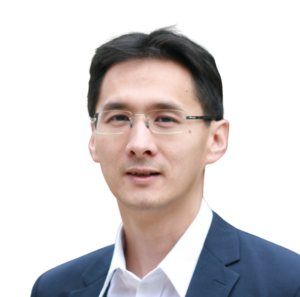The spread of Covid-19 has led to a global problem in all aspects of life, including in the tourism sector which directly affects the hotel industry. According to a ResearchGate study during the pandemic, the rate of hotel occupancy in Asia dropped by 57% and 63.4 million employees lost their jobs.
The firm says this condition is mainly caused by the travel ban regulation that is followed by the temporary closure of tourist destinations. The firm noted that the hotel industry in Asia has lost up to US$1,041 million due to massive booking cancellations, and employees in this industry are even more severely affected as they have no income to support their lives.
One such group, Accor S.A. operates around 5,400 hotels across the world under 40+ different brands, including Ibis, Novotel, Pullman, Sofitel, Raffles, and Swissôtel.
In describing how it operates globally, Khang Nguyen Trieu, group chief technology architect (CTA) says his firm doesn't own the hotels but operates under franchise and management models. “We provide services as a hotel operator to our customers: the hotel owners,” he says, “typically either real estate companies or individuals who want to invest in hospitality. For owners who don't have hospitality expertise, we manage recruitment and the hotel staff as well as the hotel operations on their behalf.”
Cloud benefits
“During the pandemic, the whole world stopped travelling,” says Nguyen Trieu. “This accelerated Accor's move to what we call the 'asset light' model.

"The pandemic accelerated our transformation to an asset-light company where you don't manage the buildings but provide consulting and management services for hotel owners.”
Khang Nguyen Trieu
“From a technological perspective, it accelerated our move to the Cloud,” says the Accor CTA. “So, we went from owning data centres to consuming Cloud resources where we don't have to manage that infrastructure anymore.”
He explained that Accor leverages the cloud to accelerate its time to market, enable more elastic infrastructure and foster innovations such as reducing physical contact between hotel staff and guests.
“We pushed for digital contactless solutions like mobile keys: using your mobile phone to open your room door instead of collecting a physical key,” says Nguyen Trieu. “Another trend: rethink hospitality jobs from a technology perspective—such as improving tedious tasks using automation, so staff can focus more on service to guests.”
“How to make information systems evolve to support business strategies over time, how to leverage technology to deliver more business value and support our sustainability goals?”, says Nguyen Trieu. “By understanding our guests’ needs, working hand in hand with our owners and giving our teams space to execute.”
Regional standards
“Hospitality as an industry is less standardised relative to airline companies, finance or insurance,” says the Accor CTA. “Hospitality isn't easily able to integrate with different actors in the industry because of this lack of standardisation.”
Nguyen Trieu highlights his firm's diverse geographical footprint. “We are the major hospitality chain in Europe, Southeast Asia, the Pacific, South America, Middle East, while other major companies are more US-focused or China-focused,” he says. “That makes standardisation more difficult as we have a lot of local regulations and local standards to comply with.”
Agile, not agitated
What qualities define leadership in the hospitality space? “Resilience,” says Nguyen Trieu, “because there are so many changes, so many uncertainties. We never have all the parameters, and sometimes, the company needs to change course very rapidly.”
“Resilience helps you to be agile, but not agitated—when things are moving fast, you should not transmit all the changes and pressure to your teams right away because at their level they won't understand. As a leader, you need to take a step back and wait for the right moment to share with your teams—give them enough direction but without the micro-changes that can cause stress.”
There are always organisational boundaries, says Nguyen Trieu. “People tend to define themselves within these boundaries—'I belong to that team. I belong to that department'.”
He says that the challenge from a leadership perspective, is to realise and promote the importance of the collective mission. “How do I as a leader bridge my own organisation's silos so that I'm able to collaborate with the rest of the company? That's a key quality because what makes organisations work is the collaboration that happens right across the organisation – from leadership to the ground.”
Innovation as a mindset
Having a mindset which isn't satisfied with the status quo is an asset, says Nguyen Trieu. “Often, we talk about innovation around products, but innovation isn't only about products but also about processes, and how people work together. During the pandemic, we saw the innovation that can be brought into remote work, as many companies learned to work in different ways. It comes back to not being satisfied with the status quo and being able to think differently about products, people, and processes.”

A typical organisation is structured by competencies, says Nguyen Trieu. “So, you have a marketing department, a communications department, a sales department, an engineering department,” he says. “But this is a barrier to innovation because usually innovation isn't built around specific skills.”
“What I've seen in my career is that companies that mix competencies—teams made up of marketing people, engineering people, security people, with a single manager, all working on a certain product can more easily innovate. You have people of diverse competencies focusing on something together and working day-to-day on the same thing together but with different points of view.”
And innovation takes time. “If your organisation is only focused on delivering and execution then your people do not have the time to step back and think outside the box because they're focused on deliverables 100% of the time. They don't have time to think.”
Innovation as investment
Nguyen Trieu says it's better to view innovation as an investment: “If it's an investment, then I choose to have the capacity for my people to innovate.” And the pandemic is an opportunity, he says. “With COVID 19 people had time to step back and say: 'Okay, what's happening to the industry? How can we start to transform and deliver great value?'”
“Innovation comes from diversity,” says Nguyen Trieu. “Best results are achieved when the whole company is involved, not only the people in the innovation centre. Many good innovation ideas come from people working on the help desk or in call centre support because they're at the forefront of what we hear from the customers. They have better insight into product functions and customer satisfaction.”
To nurture innovative mindsets and cultures, Nguyen Trieu recommends that leaders first make sure their teams can execute. “A team, with the mindset and skills to execute well, will by nature want to deliver on whatever you give it. So if you give them more capacity, to be able to take a step back and to innovate, you can be confident that this team will not just procrastinate and spend this extra time just to think around: this team will want to see the results of its ideas and will know how to execute them. They will also be able to execute and if the idea is good, they will be able to scale the idea.”
He added that the call for inclusivity requires investing in change management and putting in place leaders with an open and caring mindset, willing and able to realise plans and commitments, into execution.
"It is also important that actions match with the reality on the ground while being forward-looking. Ultimately, the approach towards IT team and leadership should always ask itself whether people feel ownership of the strategy," he continued.
“We want to get the most from our collective intelligence,” says Nguyen Trieu.
An enduring passion
Having chosen to pursue a career in information technology, Nguyen Trieu, confided that his passion is the pursuit of Tech for Good. Also known as Tech4Good, it is defined as the use of technology to effect deliberate, positive social benefits.
For Nguyen Trieu, Tech4Good goes beyond sustainability, climate change mitigation, and ethics in technology as well as supporting initiatives to provide tech education for the underprivileged, and diversity.
"I believe in the positive impact of mentoring and advising people in my network, sharing my experiences and helping them on their journey should they wish to pursue a tech career," he elaborated.
The future
A proponent of “100 brains are better than 1”, Nguyen Trieu suggests where possible, to consider leveraging the collective intelligence, and diversity of points of view, including engaging in conversations with different departments.
"Ensure that you have the capacity not only to think but also the capacity and know-how to deliver so innovations may have an impact/scale," he added. "He suggested seeing innovation as an investment with a startup approach to funding – where funding depends on the progress and the learnings. And also, to be comfortable that some fundings won’t bring ROI if the idea does not work out, they will be compensated by the few innovations which can scale" he concluded.
* Editor's notes: This article is part of the Cxociety Coffee Table Book project (The Project) which chronicles the journey and experiences of senior business, operations, finance and technology leaders in Asia in recent years. The Project illustrates the tenacity, ingenuity and resiliency of the human spirit in the face of seemingly endless challenges.
With nearly 50 stories chronicled in The Project, it is a must-read compendium of learnings and experiences from seasoned professionals in the region.




